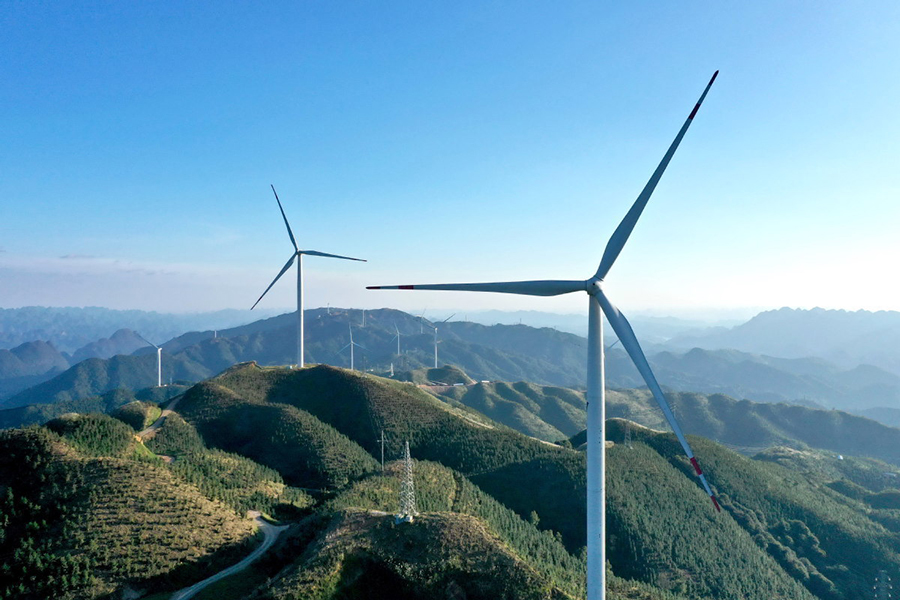
Aerial photo taken on Aug 19, 2020 shows wind turbines in Jiucaiping scenic spot in Southwest China's Guizhou province. [Photo/Xinhua]
This is an editorial from China Daily.
US Special Presidential Envoy for Climate John Kerry's visit to China from Tuesday to Friday has both symbolic and substantial meaning, as the wide attention it is receiving around the world indicates.
If the face-to-face talks between the world's top two carbon emitters can produce something definite ahead of the 26th Conference of the Parties to the United Nations Framework Convention on Climate Change to be held in Glasgow, Scotland, this November, the upcoming COP 26 might be worth the expectations that are being put on it.
It is to be hoped that Kerry's four-day visit carries on the positive momentum generated during his two-day visit in April, when he became the first senior US representative of the Joe Biden administration to visit China.
But with that in mind, Kerry should not come with the unrealistic impression that the United States can pressure China to take any impractically bigger strides in emissions reduction. Something the Japanese foreign minister told the media that Japan will seek to do together with the US after his meeting with Kerry on Tuesday during the latter's stop in Japan on his way to China.
It is fair to say that Kerry has so far done a good job in trying to insulate climate cooperation from the escalating tensions between Beijing and Washington. However, if he attempts to coerce China to swallow US pills on climate action, he will be undoing all the good work he has done so far.
As a veteran diplomat and an expert on climate change issues, Kerry should be well aware that China is doing all it can to realize its planned emissions peak before 2030 and attain carbon neutrality before 2060, the 30-year period between those two goals being the shortest among all major economies. No developed countries have peaked their carbon emissions while their industrialization was still going on, as China aims to do.
Kerry also knows that given their inaction in providing the overdue technology and funding supports they promised to provide the less-developed countries to cut emissions, it is the developed countries, the US in particular, that should demonstrate more ambition and match their earnestness with actions to resolve the climate crisis.
China will adhere to the road map it has charted to achieve its emissions reduction targets, an integral part of its green development strategy. Although China always keeps its door open for cooperation and dialogue in that regard, those must be based on an equal footing and mutual respect, and stick to the principle of common but differentiated responsibilities.
If the US tries to make climate cooperation another part of its geopolitical competition with China, its indifference to the common fate of human beings will be self-evident.

 中文
中文



